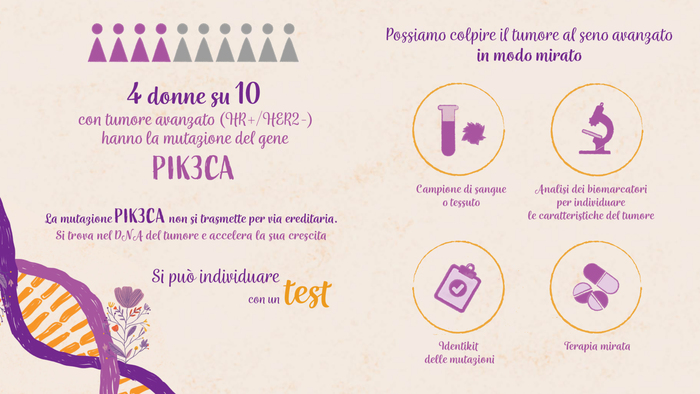(ANSA) - ROME, APRIL 27 - Over 37 thousand Italians live today with a diagnosis of metastatic breast cancer and the detection of genetic mutations responsible for tumor growth offers important values to guide the treatment path, thanks also to scientific innovations increasingly aimed at act on the specific genetic characteristics of the tumor Tracing an identity card of breast cancer and identifying the causes of its growth, thanks to the in-laboratory analysis of genetic mutations, is a reality on which scientific innovations and new health opportunities for women are based , but which today only affects a small percentage of patients. This was revealed by the data of an IQVIA research carried out for Novartis,which involved almost 300 pathological anatomy departments and molecular biology laboratories throughout the national territory, to focus on the available technologies and their effective use to carry out gene sequencing tests. Of the departments involved, only 33% have gene sequencing technologies available and of these, only 30% perform this type of breast cancer test.
"We are facing a turning point - explains Pierfranco Conte, Professor of Medical Oncology at the University of Padua - for the treatment of breast cancer that requires the definition of diagnostic-therapeutic paths that increasingly take into account advanced molecular diagnostics. The knowledge developed on the causes. genetics at the basis of tumor growth have in fact led to the definition of different therapeutic pathways in breast tumors with particular genetic alterations such as HER2 + tumors and BRCA ½ mutated tumors. New target therapies have recently been developed, aimed at acting on specific mutations, such as the PIK3CA mutation which affects about 40% of patients. These innovations, in light of the current paradigm of diagnosis and treatment, require the development of new strategies,that focus on the role of molecular diagnostics and the collaboration between clinical elaborators ". (ANSA).

